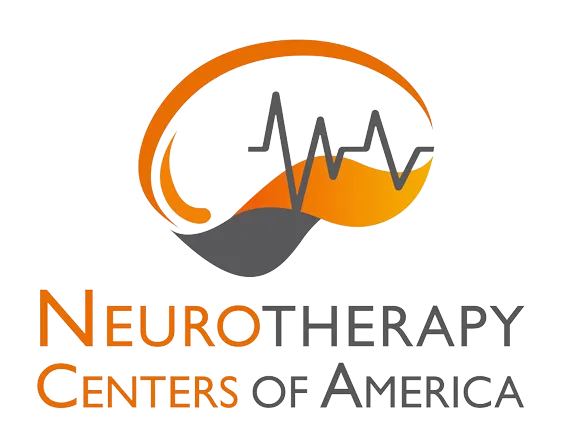
Women's Mental Health: The Surprising Role of Hormones
“To control your hormones is to control your life"- Barry Sears
Introduction:
Women's mental health is a beautifully intricate tapestry woven from various threads, including genetics, environment, life experiences, and, importantly, hormones. These chemical messengers play a significant role in regulating mood, stress response, and cognitive function. Understanding how hormones such as estrogen, progesterone, and testosterone affect the brain's neural connections and signals is vital for addressing mental health concerns. In this comprehensive exploration, we'll delve into the delicate dance of these hormones and the transformative potential of functional medicine in healing imbalances.

The Hidden Crisis: Misdiagnoses and Mainstream Medicine's Knowledge Gap
Misdiagnosis and Dismissal: Women have long grappled with misdiagnoses and dismissive attitudes in the medical field, particularly regarding hormonal imbalances. Symptoms related to hormonal fluctuations, like mood swings, anxiety, and cognitive changes, are sometimes overlooked or misattributed to other factors.
Limited Hormone Education: Medical education often provides limited training on hormonal and mental health, leading to a lack of awareness about the intricate hormonal systems in the body. As a result, hormonal imbalances are frequently underdiagnosed or misunderstood.
Fragmented Care: The traditional healthcare system can be fragmented, with specialists often treating individual symptoms without considering the holistic picture of a woman's hormonal health. This fragmented approach can lead to suboptimal care and prolonged suffering.
Functional Medicine's Pioneering Role in Women's Health and Hormones
Holistic Hormone Testing: Functional medicine practitioners are pioneering comprehensive hormone testing to unveil the nuanced imbalances that impact women's mental health. These tests offer a personalized roadmap to rebalance hormones.
Educating Women: Functional medicine emphasizes patient education, empowering women to understand their hormonal health better. When women are informed, they can advocate for themselves within the medical system.
Nutrition and Lifestyle Interventions: Functional medicine recognizes the pivotal role of nutrition and lifestyle in hormonal balance. By emphasizing whole foods, specific nutrients, and healthy habits, it helps women take control of their well-being.
Stress Management: Stress and hormones are deeply intertwined. Functional medicine incorporates stress management techniques to regulate cortisol levels and improve overall hormonal health.
Natural Hormone Support: Functional medicine embraces natural remedies and bio-identical hormone therapies when necessary. These treatments aim to restore hormonal equilibrium safely and effectively.
The Neurobiological Dance: Hormones, Neural Connections, and Mental Health
Neurotransmitter Modulation: Hormones profoundly impact neurotransmitters, the brain's chemical messengers. For instance, estrogen boosts serotonin, associated with well-being. These fluctuations explain the mood changes women experience during their menstrual cycle.
Neuroplasticity and Cognitive Function: Hormones like estrogen play a vital role in promoting neuroplasticity, which supports cognitive function and emotional resilience. Imbalances can hinder these processes, contributing to mood disorders and cognitive difficulties.
Stress Responses: Hormones are pivotal in the body's stress response. Fluctuations can disrupt the brain's ability to regulate stress hormones like cortisol, contributing to anxiety and depression.
Practical Steps to Uncover Hormone Function and Healing Solutions
Seek a Functional Medicine Practitioner: Start by consulting with a functional medicine specialist. They can conduct comprehensive hormone testing and provide personalized insights into your hormonal health.
Educate Yourself: Take the initiative to learn about your own hormonal health. Numerous reputable resources, books, and online courses are available to help you understand your body better.
Lifestyle and Nutrition: Make positive changes in your daily routine. Prioritize a balanced diet, regular exercise, quality sleep, and stress management to support hormonal balance.
Consider Hormone Testing: Discuss hormone testing with your healthcare provider to uncover any imbalances. These tests can be invaluable in guiding treatment options.
Explore Holistic Healing: Investigate holistic approaches such as mindfulness, exercize, acupuncture, and guided herbal remedies to complement traditional treatments and support hormonal balance.
Conclusion
The intersection of women's hormones and mental health has long been a mystery, plagued by misdiagnoses and a knowledge gap in mainstream medicine. However, the functional medicine revolution is rewriting this narrative, offering hope and transformative solutions. By recognizing the intricate interplay between hormones, neural signals, and brain function, functional medicine empowers women to regain control over their emotional well-being.
This paradigm shift in healthcare addresses the root causes of hormonal imbalances, educates women on their bodies, and provides holistic, patient-centered care. Functional medicine isn't just a treatment; it's a movement that champions women's health and hormones, bridging the gap between mind and body. It's a testament to the power of personalized care, informed choices, and science-driven solutions on the path to a happier and healthier life.
Virtual Options
Contact us to schedule a FREE consultation and find out how you can qualify for a FREE cognitive/behavioral and metabolic evaluation.
Contact us at https://www.neurotherapycentersusa.com/contact
Visit our website at https://www.neurotherapycentersusa.com
Visit our Facebook Page https://www.facebook.com/neurocentersusa
*The information in this blog is intended for educational purposes only. The opinions expressed in this blog are the opinions of the blog owner, and any other opinions in quotations are the opinion of the sited reference.
"Copyright Disclaimer under Section 107 of the copyright act 1976, allowance is made for fair use for purposes such as criticism, comment, news reporting, scholarship, and research. Fair use is a use permitted by copyright statute that might otherwise be infringing. Non-profit, educational or personal use tips the balance in favour of fair use."
Neurotherapy Centers of America 2023

Women's Mental Health: The Surprising Role of Hormones
“To control your hormones is to control your life"- Barry Sears
Introduction:
Women's mental health is a beautifully intricate tapestry woven from various threads, including genetics, environment, life experiences, and, importantly, hormones. These chemical messengers play a significant role in regulating mood, stress response, and cognitive function. Understanding how hormones such as estrogen, progesterone, and testosterone affect the brain's neural connections and signals is vital for addressing mental health concerns. In this comprehensive exploration, we'll delve into the delicate dance of these hormones and the transformative potential of functional medicine in healing imbalances.

The Hidden Crisis: Misdiagnoses and Mainstream Medicine's Knowledge Gap
Misdiagnosis and Dismissal: Women have long grappled with misdiagnoses and dismissive attitudes in the medical field, particularly regarding hormonal imbalances. Symptoms related to hormonal fluctuations, like mood swings, anxiety, and cognitive changes, are sometimes overlooked or misattributed to other factors.
Limited Hormone Education: Medical education often provides limited training on hormonal and mental health, leading to a lack of awareness about the intricate hormonal systems in the body. As a result, hormonal imbalances are frequently underdiagnosed or misunderstood.
Fragmented Care: The traditional healthcare system can be fragmented, with specialists often treating individual symptoms without considering the holistic picture of a woman's hormonal health. This fragmented approach can lead to suboptimal care and prolonged suffering.
Functional Medicine's Pioneering Role in Women's Health and Hormones
Holistic Hormone Testing: Functional medicine practitioners are pioneering comprehensive hormone testing to unveil the nuanced imbalances that impact women's mental health. These tests offer a personalized roadmap to rebalance hormones.
Educating Women: Functional medicine emphasizes patient education, empowering women to understand their hormonal health better. When women are informed, they can advocate for themselves within the medical system.
Nutrition and Lifestyle Interventions: Functional medicine recognizes the pivotal role of nutrition and lifestyle in hormonal balance. By emphasizing whole foods, specific nutrients, and healthy habits, it helps women take control of their well-being.
Stress Management: Stress and hormones are deeply intertwined. Functional medicine incorporates stress management techniques to regulate cortisol levels and improve overall hormonal health.
Natural Hormone Support: Functional medicine embraces natural remedies and bio-identical hormone therapies when necessary. These treatments aim to restore hormonal equilibrium safely and effectively.
The Neurobiological Dance: Hormones, Neural Connections, and Mental Health
Neurotransmitter Modulation: Hormones profoundly impact neurotransmitters, the brain's chemical messengers. For instance, estrogen boosts serotonin, associated with well-being. These fluctuations explain the mood changes women experience during their menstrual cycle.
Neuroplasticity and Cognitive Function: Hormones like estrogen play a vital role in promoting neuroplasticity, which supports cognitive function and emotional resilience. Imbalances can hinder these processes, contributing to mood disorders and cognitive difficulties.
Stress Responses: Hormones are pivotal in the body's stress response. Fluctuations can disrupt the brain's ability to regulate stress hormones like cortisol, contributing to anxiety and depression.
Practical Steps to Uncover Hormone Function and Healing Solutions
Seek a Functional Medicine Practitioner: Start by consulting with a functional medicine specialist. They can conduct comprehensive hormone testing and provide personalized insights into your hormonal health.
Educate Yourself: Take the initiative to learn about your own hormonal health. Numerous reputable resources, books, and online courses are available to help you understand your body better.
Lifestyle and Nutrition: Make positive changes in your daily routine. Prioritize a balanced diet, regular exercise, quality sleep, and stress management to support hormonal balance.
Consider Hormone Testing: Discuss hormone testing with your healthcare provider to uncover any imbalances. These tests can be invaluable in guiding treatment options.
Explore Holistic Healing: Investigate holistic approaches such as mindfulness, exercize, acupuncture, and guided herbal remedies to complement traditional treatments and support hormonal balance.
Conclusion
The intersection of women's hormones and mental health has long been a mystery, plagued by misdiagnoses and a knowledge gap in mainstream medicine. However, the functional medicine revolution is rewriting this narrative, offering hope and transformative solutions. By recognizing the intricate interplay between hormones, neural signals, and brain function, functional medicine empowers women to regain control over their emotional well-being.
This paradigm shift in healthcare addresses the root causes of hormonal imbalances, educates women on their bodies, and provides holistic, patient-centered care. Functional medicine isn't just a treatment; it's a movement that champions women's health and hormones, bridging the gap between mind and body. It's a testament to the power of personalized care, informed choices, and science-driven solutions on the path to a happier and healthier life.
Virtual Options
Contact us to schedule a FREE consultation and find out how you can qualify for a FREE cognitive/behavioral and metabolic evaluation.
Contact us at https://www.neurotherapycentersusa.com/contact
Visit our website at https://www.neurotherapycentersusa.com
Visit our Facebook Page https://www.facebook.com/neurocentersusa
*The information in this blog is intended for educational purposes only. The opinions expressed in this blog are the opinions of the blog owner, and any other opinions in quotations are the opinion of the sited reference.
"Copyright Disclaimer under Section 107 of the copyright act 1976, allowance is made for fair use for purposes such as criticism, comment, news reporting, scholarship, and research. Fair use is a use permitted by copyright statute that might otherwise be infringing. Non-profit, educational or personal use tips the balance in favour of fair use."
Neurotherapy Centers of America 2023

Download Our Free eBook Now
©2025 Neurotherapy Centers Of America.
All rights reserved.
*We offer a drug-free, non-invasive approach to alleviate symptoms associated with: ADHD, Autism Spectrum Disorders, Anxiety, Insomnia, Learning Disorders, Memory Loss, Fibromyalgia, Migraine and more..
Our advertising features actual client testimonials. Individual results may vary.
©2025 Neurotherapy Centers Of America. All rights reserved.
*We offer a drug-free, non-invasive approach to alleviate symptoms associated with: ADHD, Autism Spectrum Disorders, Anxiety, Insomnia, Learning Disorders, Memory Loss, Fibromyalgia, Migraine and more..

